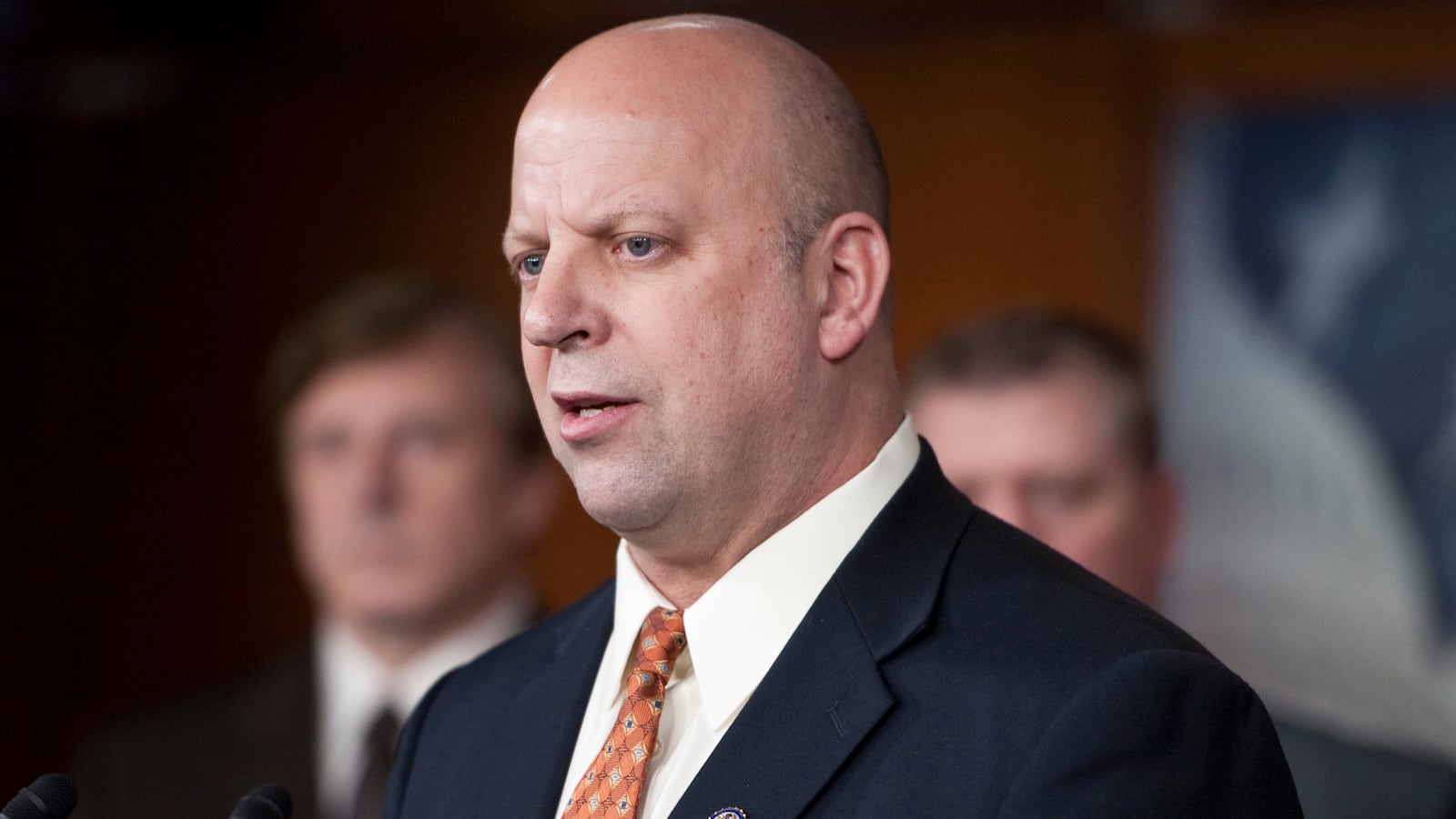Though Eric Cantor’s primary upset is considered the biggest surprise of the midterm election cycle, another race may come in a close second. I say “may” because the results have not been officially certified, but if things hold as is, Rep. Scott DesJarlais—currently with a 38-vote lead over his opponent—will win the Republican nomination and a chance to continue representing Tennessee’s Fourth Congressional District.
So why is this potentially one of the political upsets of the year? Because according to political watchers, DesJarlais’ political future was D.O.A. thanks to revelations linking him to not just one, but numerous scandals that involved sex and stuck a knife right into the heart of the conservative’s family-values posture.
Democrats fought successfully to have DesJarlais’ divorce records unsealed—although a judge delayed the move until after Election Day in 2012. The documents painted a contradictory picture of a man who campaigned as a social conservative but behaved as anything but. According to the documents, DesJarlais supported his wife’s two abortions before their marriage—despite being vocally opposed to abortion in his political life. He also engaged in affairs, including with patients. (DesJarlais worked as a practicing physician before his election to Congress.) He pressured one woman to seek an abortion following their liaison. Yet despite his own extensive marital transgressions, he believes in preserving the sanctity of traditional marriage by opposing marriage rights for same-sex couples.
So why is DeJarlais ahead in a primary in a conservative district? Furthermore, why is he yet another in a long list of candidates whose personal behavior is at odds with their policies who ultimately win reelection? From Louisiana Senator David Vitter’s prostitution scandal to South Carolina Governor Mark Sanford’s clandestine hike along the Appalachian Trail to Newt Gingrich’s multiple marriages, social conservatives are frequently given a pass for not being so conservative in their personal lives. But they are not alone. Much like Democrats shake their heads at conservative ambivalence towards the scandal-plagued hypocrites in the GOP, plenty of conservative women questioned how the same feminists who opposed Clarence Thomas due to sexual harassment allegations could support President Bill Clinton time and again.
So what gives? Why do voters give hypocrites a pass?
“The hypocrisy drives liberals crazy,” Democratic political consultant Michael Goldman told The Daily Beast of typical reactions among progressives to candidates like DesJarlais. Goldman, who has advised Massachusetts Governor Deval Patrick, among others, explained, “One would think the hypocrisy drives all people crazy. But in the end they [candidates] may be hypocritical on their personal behavior, but they are not hypocritical in their votes in Congress.” He elaborated that as long as voters feel as though the actions of the elected official while doing his job is in voters’ interests, they will almost always look the other way when it comes to personal behavior.
Democratic consultant Jamal Simmons echoed this sentiment. “The choice that voters are making is about their future, not the politician’s past.” He pointed out that African-American voters consistently supported Democratic Senator Robert Byrd of West Virginia, a former member of the Ku Klux Klan who eventually renounced racism but perhaps more important, consistently supported policies African Americans preferred while in office. Simmons explained that when voters go to the polls, they are “choosing between two people on the ballot, not between the person who made mistakes and a saint.” So they vote for whomever they believe will be best for them and their interests, regardless of that person’s personal failings.
Cheri Jacobus, a Republican political consultant, posited that there is something else at play. Voters may be a tough crowd, but ultimately they like to decide whether their elected representatives keep their jobs, and they don’t like it when the media and political enemies come across as bullies. “Voters may not agree with or approve of the behavior,” she wrote in an email, “but if it appears the attacks on the individual are too strong or seem like a piling on—especially if the perpetrator seems contrite—the electorate may become forgiving and even sympathetic. People judge others, but they don’t like to see others judging others.” She cited how Democratic turnout strengthened during the height of the Lewinsky scandal. “Though he [Clinton] was actually impeached for perjury and obstruction of justice, voters believed he was being impeached for his sexual ‘sins’ and decided to punish those they determined were passing judgment. Republicans suffered in the 1998 midterm elections as a result.”
While this is a potent example of scandal increasing turnout, Goldman stressed that in most instances the perpetrator of political hypocrisy will benefit from decreased voter turnout. “If you look at most of the examples you give me I guarantee the turnout was small.” Goldman explained that the lower the turnout the more likely an incumbent is to survive, regardless of the scandal. “A lot of voters don’t pay attention. The sad truth is the people most likely to vote in primaries are the people most likely to know the congressman and to be the most forgiving. The larger the voter turnout, the more non-traditional voters you have, the more likely it is someone is going to be punished for behavior that seems hypocritical.” Of DesJarlais, he said, “If the stuff in that race had happened during his initial campaign he would have been defeated hugely. Even on a first term he may have been defeated. [DesJarlais is seeking a third term.] The longer someone’s in, the more people say, ‘Yeah, but he delivered for me. He took care of my cousin. When I went to Washington he took time to meet with me or he took me on a tour,’” Goldman said.
But Goldman also observed that often the perpetrator of the hypocrisy is accidentally aided by his critics. They often harp on the indiscretion, such as an affair, and not the larger picture. “It’s not about what the person did. It’s about what they said they would do and what their behavior says about whether you can trust anything they say going forward.” He concluded, “Too often critics focus on the behavior, not what the behavior represents.” In the eyes of voters, apparently politicians who say one thing, and do another, are as American as apple pie.




